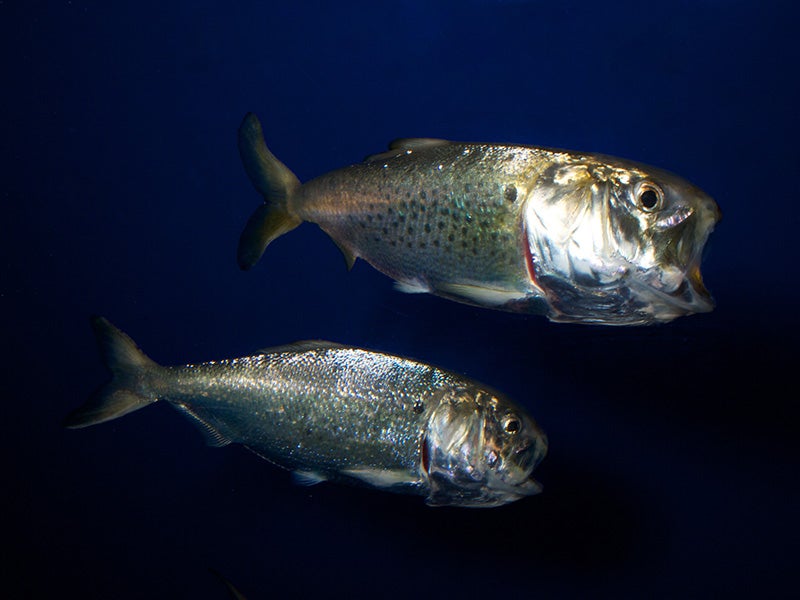Big Day For Little Fish
The Atlantic States Marine Fisheries Commission has finally responded to sound science and a huge public outcry by imposing the first ever coastwide fishing cap on the catch of a little fish known as the menhaden.

This page was published 13 years ago. Find the latest on Earthjustice’s work.
On Friday, the Atlantic States Marine Fisheries Commission finally responded to sound science and a huge public outcry by imposing the first ever coastwide cap on the catch of a little fish known as the menhaden.
More than 100,000 Americans (including more than 13,000 Earthjustice activists) wrote to the commission demanding protection for a fish that is an essential food source for seabirds, whales, and game fish like the striped bass.
The commission also cut next year’s catch to 25 percent below the 2011 menhaden catch. This cut will end recent overfishing and begin long term recovery of a species that has been reduced by 90 percent over the last three decades. New scientific information due in 2014 will trigger a transition to more precautionary long term catch levels.
Peter Baker, of the PEW Environment’s Northeast Fisheries Program said, “Tens of thousands of people from all walks of life—anglers, business owners, birders, scientists, conservationists, and more—have long been urging this sort of action because they know what menhaden mean for their coastal ecosystem and economy. Today, those voices were heard.”
In recent times, the rapacious industrial fishing of menhaden falls squarely on one company, Omega Protein, which grinds up the fish to make a variety of products, including omega-3 oil capsules and food for aquaculture and chicken farms. In the past, Omega has threatened to sue over any restrictions on its practices. Roger Fleming, an attorney for Earthjustice who has been working with anglers, business owners, birders, scientists, conservationists to reduce Omega’s take, is not worried.
“Despite the self-interested claims of the Omega Corporation, this action will benefit everyone involved. Growing menhaden populations will benefit all the species that need them as food, the fishermen who need them as bait, and even Omega who will have sustainable supply to grind up and feed to chickens,” said Fleming.
Earthjustice’s Oceans Program uses the power of the law to safeguard imperiled marine life, reform fisheries management, stop the expansion of offshore oil and gas drilling, and increase the resiliency of ocean ecosystems to climate change.